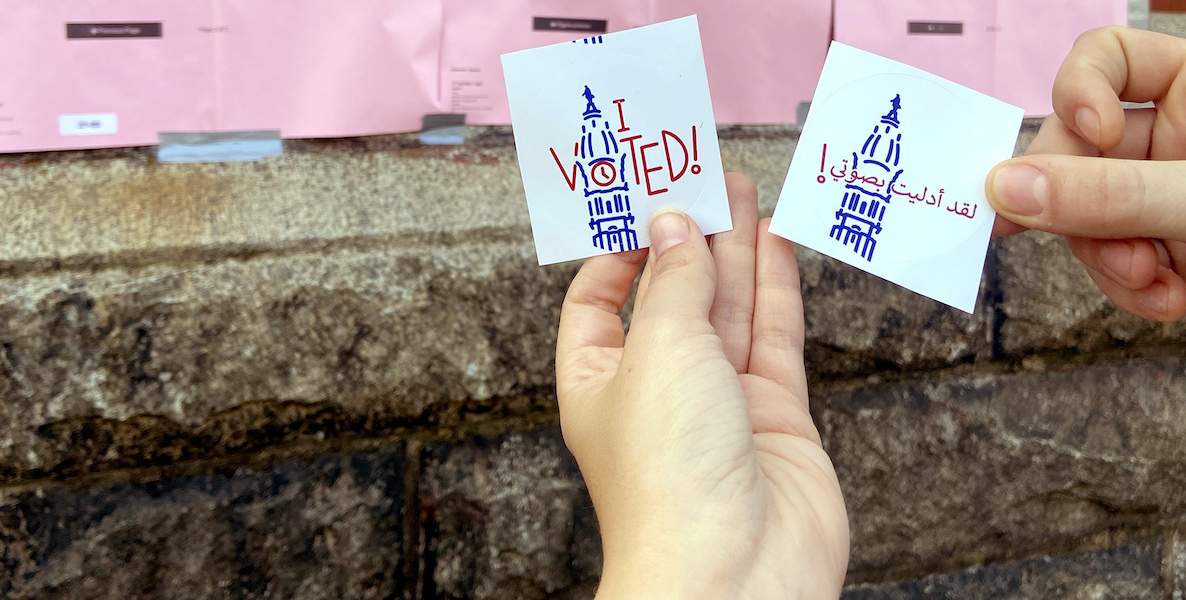Urban boosters are often quick to note cities’ advantages: they offer residents more job opportunities, more sustainable lifestyles, more diverse populations. But there’s one category where cities consistently underperform suburban and rural areas: voter turnout.
Last November when we elected Mayor Cherelle Parker, 320,000 votes were cast, notching a turnout rate of more than 30 percent. Meanwhile, surrounding suburbs had a turnout rate of more than 50 percent.
Because city dwellers across the country vote at rates about 5 to 15 percent lower than their surrounding suburbs, and those urbanites that do vote are overwhelmingly Democrats, cities tend to get ignored by Republican and Democratic campaigns alike.
Let’s hope the battle for cities pushes urban issues to the forefront of the presidential election, but in a more positive light.
Urban dwellers’ concerns about affordable housing, transportation, and poverty tend to get ignored in national elections. Low urban turnout feeds a vicious cycle at the state level as well: because urban voters are less numerous than suburban and rural voters, there are fewer urban-minded state-level representatives pushing for urban concerns.
But 2024 will be different. Cities will be an unexpected battleground for the presidential election.
most of those Philadelphia voters were White and wealthy. Meanwhile, according to the Inquirer, “Turnout in majority Black and Hispanic precincts, many of which are lower-income, was 11 percent lower than four years ago.
The Donald Trump “surprise”
Philadelphia isn’t the only city seeing a decline in voting among people of color. In Louisiana, the recent “surprise” election of Trump-endorsed Republican Governor Jeff Landry is seen as resulting from low voter turnout in New Orleans, particularly among Black voters. According to NPR, voter turnout in Orleans parish was 27.3 percent — down by more than 11 percent from the 2019 gubernatorial primary.
A recent article in The New Republic claims that Black voters in Milwaukee could decide the fate of the 2024 election. In a sign of just how much is at stake there, Republicans have opened field offices in Milwaukee’s traditional Democratic strongholds.
Black and brown urban voters in American swing states — Philadelphia in Pennsylvania, Detroit in Michigan, and Milwaukee in Wisconsin — are going to decide the 2024 election. Swing states are often decided by a margin of less than 50,000 votes — merely a ZIP code or two in most urban areas. This is what happened in Pennsylvania in 2016, when Donald Trump garnered 45,000 more votes than Hillary Clinton to win the state.
But this year, many of the topics at hand in the 2024 election — foreign wars, budget deficits — feel distant from the local issues that might drive urban turnout, like violence prevention and investment in education. In 2020, Donald Trump focused on crime to denounce the state of American cities and threatened to bring in federal enforcement to make cities safer. Joe Biden could offer a more nuanced approach by addressing the real need for improved public safety in cities, but touting the fact that most violent crimes are down in cities since 2020.
Let’s hope the battle for cities pushes urban issues to the forefront of the presidential election, but in a more positive light. Biden’s first political role was on city council, and his administration features several former mayors, from Department of Transportation Secretary Pete Buttigieg to outgoing Housing and Urban Development Secretary Marcia Fudge. His administration designed programs like Reconnecting Communities and Neighborhoods, which aims to stitch back together cities harmed by highways — and just doled out $157 million to Philadelphia to address the chasm of I-676 in Chinatown — with an eye toward the needs of city dwellers for more socially, economically and environmentally sustainable communities rather than roadways.
Maybe this time around, instead of talking about cities and gun violence, the opioid epidemic, homelessness, and underfunded public schools in the same breath, the national election will give urbanites a reason to vote for more forward-thinking programs like these that are tailored to the unique needs of cities.
Diana Lind is a writer and urban policy specialist. This article was also published as part of her Substack newsletter, The New Urban Order. Sign up for the newsletter here.
![]() MORE FROM DIANA LIND’S NEW URBAN ORDER
MORE FROM DIANA LIND’S NEW URBAN ORDER



